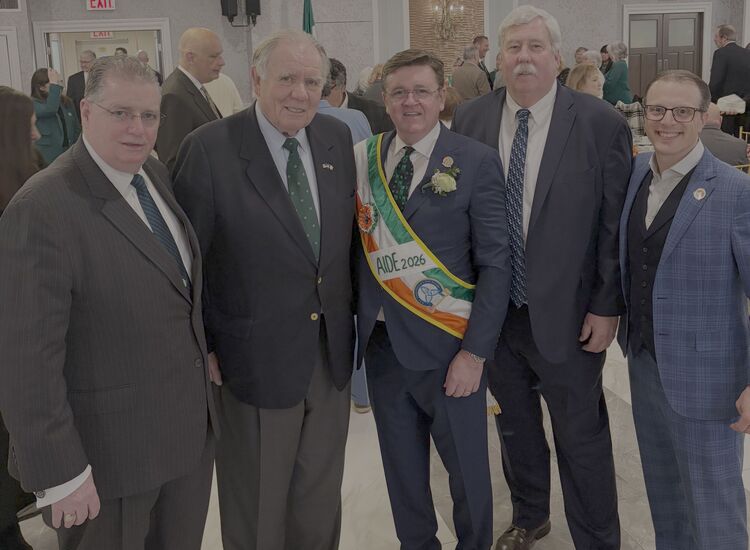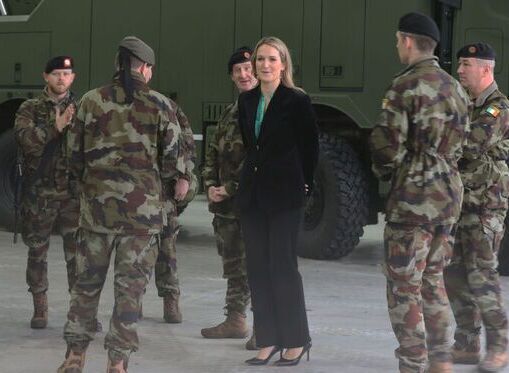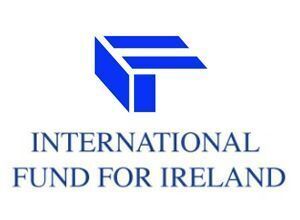The funeral Mass for Ireland's former finance minister Brian Lenihan has taken place in Dublin, the gathering uniting representatives from across the political divide in the South, as well as from north of the border.
The service was held at St. Mochta's Church in Porterstown, West Dublin Tuesday.
Family members were joined by President Mary McAleese, Taoiseach Enda Kenny and former cabinet colleagues, as well as former taoisigh Bertie Ahern and Brian Cowen, Northern Ireland Deputy First Minister Martin McGuinness, former tánaiste Mary Harney, and former Green Party leader and cabinet colleague, John Gormley.
Over 1,000 mourners in total, including several hundred members of the public waiting outside, gathered to pay their respects to the former deputy leader of Fianna Fail, who passed away last Friday aged 52 from pancreatic cancer, which he had been first diagnosed with in December, 2009.
Friends, colleagues and constituents applauded as the former minister's family arrived for the service at the small church, which is in the heart of the Dublin West constituency where Mr. Lenihan first won a Dáil seat in 1996 and which he retained in every subsequent election.
The service was led by St. Mochta's parish priest, Fr. Eugene Kennedy, who told mourners that Mr. Lenihan had suffered a cruel irony, after supporting the development of St. Francis Hospice's new facility in Blanchardstown, only to end up being cared for by staff there.
"The new hospice will remain a monument to his work and what a cruel irony he was among its first home care patients," Fr. Kenendy said.
"He was cut down in his prime, but in recent weeks he was not afraid, only concerned for the pain his family would suffer."
The priest went on to say that Mr. Lenihan had regularly prayed in the church on Sunday nights.
"Tribute has already been amply paid to the talent, the gifts and the personality of Brian on a national stage. Today we focus on his dedication to his local community and his personal character.
"He was heavily involved in community work here and never looked for an inch of media space or an ounce of public credit."
Delivering the eulogy, former attorney general, Paul Gallagher, described Lenihan as "a master of all the talents" and "a great patriot."
The cabinet held its meeting early on Tuesday to allow government ministers to attend the funeral. As a mark of respect, Dáil proceedings were adjourned with the tricolor flying at half-mast over the building.
Thousands of people queued over the weekend to pay their respects and sign books of condolence at Mr. Lenihan's office in Castleknock, and also at Government Buildings.
Following the Mass, Mr. Lenihan was laid to rest at the nearby St. David's Church graveyard, where the flag draping his coffin was folded and presented to his family.
Brian Lenihan was born on May 21, 1959 into a family steeped in politics.
His grandfather, Patrick Lenihan, was a Dáil deputy from 1965 to 1970. His late father, Brian Sr., who died in 1995, was a cabinet minister for more than 25 years, while his aunt, Mary O'Rourke was also a veteran Fianna Fáil member. His brother Conor was also a minister until he, as was the case with O'Rourke, lost his seat in the February general election. Brian Lenihan, however, was returned by voters, the only Fianna Fáil TD in Dublin to secure such a mandate.
Lenihan studied law at Trinity College Dublin and later Cambridge before becoming a barrister. He entered politics after the death of his father and would serve in three government department in his more than decade long government career - as children's minister in 2002, justice minister in 2007, and Finance Minister in 2008.
It was in this final role that Lenihan was thrust into the front lines as Ireland's economic and fiscal prosperity turned to dust with the global economic downturn and the demise of the Celtic Tiger.
Under Lenihan's watch virtually the entire banking sector in Ireland was taken under government control and the government moved to guarantee deposits, a decision that was heavily criticized as the Irish economy tottered over the brink from prosperity to the point of needing a huge bailout funded by the European Central Bank and International Monetary Fund.
Despite controversy over decisions taken, Lenihan remained enormously popular as an individual and even critics praised his fortitude as he simultaneously battled the economic crisis and the cancer that would ultimately end his life.
Brian Lenihan is survived by his wife Patricia, his son Tom and daughter Claire, his mother Ann, brothers Conor, Niall and Paul, and sister Anita.










